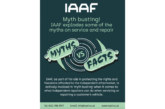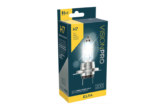
When it comes to oils, there are two phrases that are often used: ‘meets specification’ and ‘OEM approved’. Millers Oils often gets asked what the difference really is and whether it affects vehicle warranty. Here, the company’s Managing Director, Tony Lowe, lays out the truth.
Q. What’s the difference between an oil that’s approved and an oil that meets specification?
TL: As well as industry standards for oil, such as the European Automobile Manufacturers’ Association (ACEA), OEMs often have their own standards or specifications for oil that can be used in their vehicles.
These specifications are made available to oil blenders, who can then formulate products that meet the criteria. If an oil has been formulated in line with the OEM specification, it is described as ‘meets specification’.
An oil is OEM approved if it has been submitted to the vehicle manufacturer for testing and they have confirmed that it meets specification.

Q. How do I know if an oil really does ‘meet specification’?
TL: An industry organisation called the Verification of Lubricant Specification (VLS) monitors the market and checks compliance of products to industry and performance standards. This allows businesses and consumers to have confidence in the claims that oil blenders make. For more information on VLS, click here.

Q. If I use an oil that ‘meets specification’, will it invalidate my warranty?
TL: The quick answer is ‘no’. An oil that meets specification will not invalidate your warranty.
However, looking at this in more detail, it’s worth mentioning that in 2003, the European Commission introduced the Block Exemption Regulation, which is a law that stops unfair activities that prevent competition. In the context of oil, it means that motorists can have their vehicles serviced or repaired in any chosen workshop without invalidating their manufacturer’s warranty, so long as the work, parts and oil are of appropriate and matching standards to that of the manufacturer.
Simply put, if an oil meets the OEM specification, it is the same standard as the OEM approved oil and will not invalidate your warranty.







